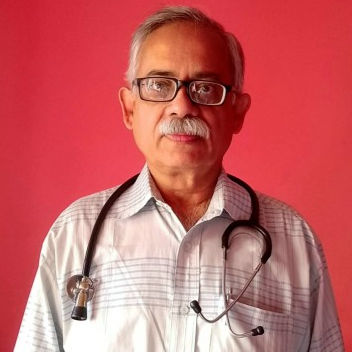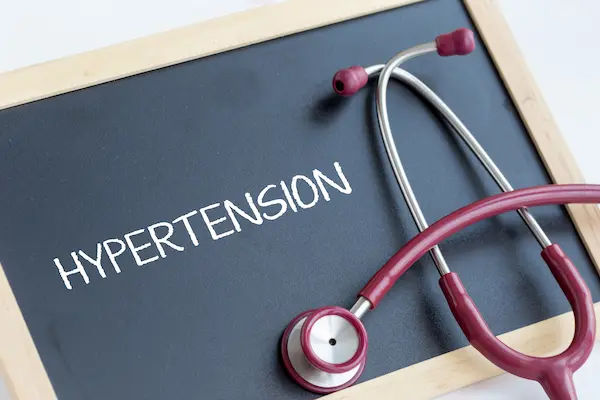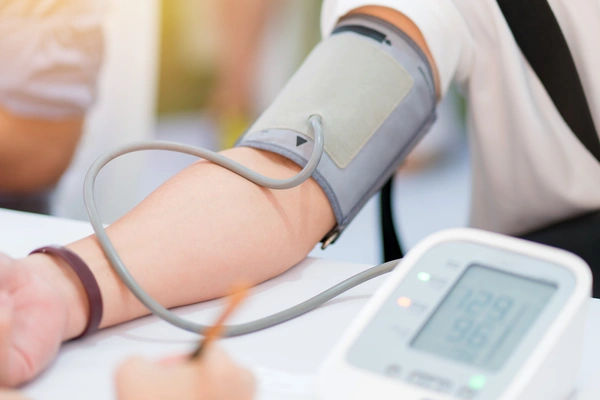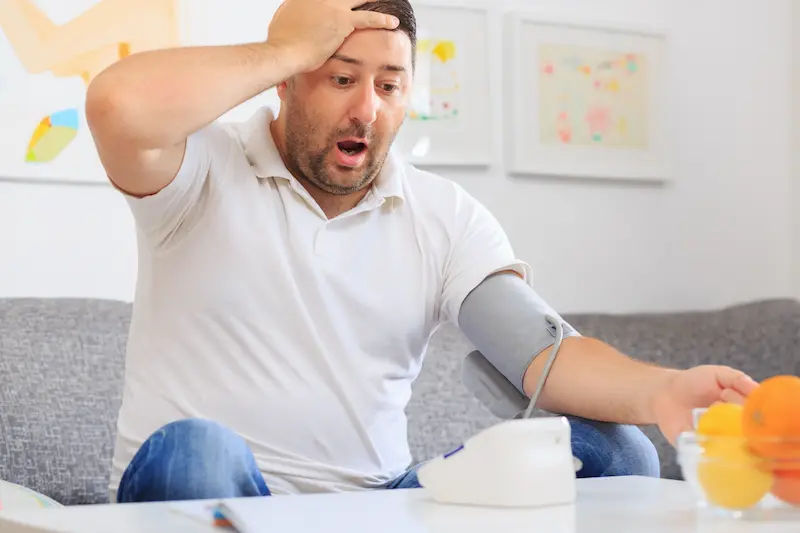Guide to Know Connect Between Hypertension And Blood Pressure
Understand the crucial relationship between hypertension and blood pressure. Learn the facts, causes, and how managing your blood pressure is key to preventing hypertension.


Introduction
You’ve likely heard the terms "blood pressure" and "hypertension" used, often interchangeably. But are they the same thing? Understanding the distinct yet deeply interconnected relationship between the two is the first step toward taking control of your cardiovascular health. Blood pressure is a fundamental physiological process—the force your blood exerts against your artery walls with every heartbeat. Hypertension, on the other hand, is a chronic medical condition where this pressure is consistently too high. Think of blood pressure as the weather—it changes throughout the day. Hypertension is the climate—a long-term, persistent pattern of high pressure that can silently strain your heart, damage blood vessels, and increase your risk for heart attack and stroke. This guide will demystify this critical connection, explaining not just what these terms mean, but how they influence each other and what you can do to maintain a healthy balance for life.
Blood Pressure 101: The Basics of a Vital Sign
Before we can understand what goes wrong, we need to understand how the system works correctly. Blood pressure is a sign of life itself, reflecting how hard your heart is working to pump blood throughout your body.
What is Blood Pressure, Really? (The Plumbing Analogy)
Imagine your circulatory system as a complex network of pipes (arteries and veins). Your heart is the pump. When the pump squeezes, it sends a surge of blood through the pipes, creating pressure. This is a simplified but accurate way to visualize it. The pressure isn't bad; it's essential for delivering oxygen and nutrients to every organ and tissue.
Systolic vs. Diastolic: Decoding the Numbers
When you get a reading, like 120/80 mmHg, you’re seeing two numbers that represent different phases of your heartbeat:
- Systolic Pressure (the top number): This is the pressure in your arteries when your heart beats (contracts). It’s the peak force of the blood flow.
- Diastolic Pressure (the bottom number): This is the pressure in your arteries when your heart is resting between beats. It indicates the baseline pressure maintained by the elasticity of your arteries.
Both numbers are crucial. While systolic pressure often gets more attention, especially in older adults, an elevated diastolic pressure is also a significant indicator of cardiovascular risk.
Consult Top Specialists for Personalised Tips
What is Hypertension? More Than Just High Numbers
So, when does normal blood pressure cross the line into a diagnosable condition? It’s not about a single high reading after a stressful day or a cup of coffee.
The Clinical Definition of Hypertension
Hypertension is diagnosed when blood pressure readings are consistently above a certain threshold. According to guidelines, the general classification is:
- Normal: Less than 120/80 mmHg
- Elevated: Systolic between 120-129 and diastolic less than 80
- Hypertension Stage 1: Systolic between 130-139 or diastolic between 80-89
- Hypertension Stage 2: Systolic at least 140 or diastolic at least 90
A diagnosis is typically made after multiple high readings are taken on separate occasions.
Why is Hypertension Called the "Silent Killer"?
This is the most critical aspect to grasp. Hypertension often has no obvious symptoms. You can feel perfectly fine for years while the elevated pressure is silently causing damage to your arteries, heart, brain, and kidneys. This is why regular screening is non-negotiable. By the time symptoms like severe headaches, chest pain, or vision problems appear, significant damage may have already occurred.
The Direct Connection: How High Blood Pressure Becomes Hypertension
This is the core of the relationship. The connection isn't mysterious; it's a matter of persistent force causing structural damage.
The Pressure-Flow-Resistance Equation
Blood pressure is determined by two main factors: how much blood your heart pumps (cardiac output) and how narrow or resistant your arteries are (peripheral resistance). When arteries are healthy and flexible, they can expand with each heartbeat, easing the pressure. Problems arise when:
1. The Heart Pumps Too Hard: Often due to factors like high sodium intake, which increases blood volume.
2. The Arteries Become Stiff and Narrow: This can be caused by a buildup of plaque (atherosclerosis) or chronic inflammation.
When either (or both) of these conditions persist, the system is constantly under strain. This chronic state of high pressure is the very definition of hypertension.
The Vicious Cycle: How Hypertension Damages Arteries
The connection becomes a dangerous loop. High pressure damages the delicate lining of your arteries. This damage creates tiny tears where plaque (cholesterol, fat, calcium) can accumulate, making the arteries narrower and stiffer. Narrower arteries mean even higher resistance, which forces the heart to pump harder, raising the pressure further. This self-perpetuating cycle is why early intervention is so vital.
Root Causes: What Forces Your Blood Pressure Up?
Understanding the causes helps you see where you can intervene. Causes are broadly divided into factors you can and cannot control.
Lifestyle Factors You Can Control
- Diet: High sodium intake is a primary culprit. Low potassium (which helps balance sodium) and excessive alcohol also contribute.
- Lack of Physical Activity: A sedentary lifestyle leads to higher heart rates and less efficient circulation.
- Obesity: More body tissue requires more blood flow, increasing pressure on artery walls.
- Smoking: Chemicals in tobacco damage artery linings and cause immediate, temporary spikes in pressure.
- Chronic Stress: While the link is complex, stress can lead to behaviors that increase blood pressure.
Underlying Health Conditions That Play a Role
- Family History: Genetics can predispose you to hypertension.
- Age: Arteries naturally stiffen with age.
- Chronic Kidney Disease: The kidneys play a key role in regulating blood pressure.
- Sleep Apnea: This disorder, characterized by interrupted breathing during sleep, can cause dramatic blood pressure spikes.
Recognizing the Signs: Symptoms and Diagnosis
Because hypertension is often asymptomatic, proactive diagnosis is key.
Common (and Often Missed) Symptoms
When blood pressure reaches a severely high level (a hypertensive crisis), symptoms may include:
- Severe headaches
- Nosebleeds
- Fatigue or confusion
- Vision problems
- Chest pain
- Difficulty breathing
Important Note: Do not wait for symptoms. If you experience these, it is a medical emergency.
How Doctors Diagnose and Classify Hypertension?
Diagnosis is straightforward. Your doctor will use a cuff and may recommend ambulatory blood pressure monitoring (wearing a device for 24 hours) to get a complete picture. They will also likely order tests, such as a cholesterol panel or kidney function test, to check for underlying causes. Apollo24|7 offers convenient home collection for these essential tests, making the diagnostic process smoother.
The Domino Effect: Long-Term Risks of Unmanaged Hypertension
Leaving hypertension untreated is like ignoring a slow leak in a pipe—eventually, the structure fails. The constant force of high pressure can lead to:
- Heart Attack or Heart Failure: The heart muscle thickens and weakens from overwork.
- Stroke: Damaged arteries in the brain can burst or become blocked.
- Aneurysm: Pressure can cause a weak spot in an artery wall to bulge and potentially rupture.
- Kidney Failure: Damaged arteries in the kidneys impair their ability to filter blood.
- Vision Loss: Damage to the delicate blood vessels in the eyes.
- Cognitive Decline: Reduced blood flow to the brain can affect memory and understanding.
Taking Control: Effective Strategies for Management and Prevention
The good news is that hypertension is highly manageable through lifestyle changes and, if needed, medication.
Dietary Changes That Make a Difference (The DASH Diet)
The Dietary Approaches to Stop Hypertension (DASH) eating plan is highly effective. It emphasizes fruits, vegetables, whole grains, and lean proteins while reducing sodium, saturated fat, and added sugars.
The Power of Movement: Exercise and Blood Pressure
Regular aerobic exercise (like brisk walking, swimming, or cycling) for at least 150 minutes per week can lower your systolic pressure by an average of 5-8 mmHg. Strength training also provides significant benefits.
When Medication is Necessary: Common Options
If lifestyle changes aren't enough, medications are very effective. Common types include diuretics (water pills), ACE inhibitors, and calcium channel blockers. The right choice depends on your individual health profile. If your condition does not improve after trying lifestyle methods, consult a doctor online with Apollo24|7 to discuss if medication is right for you.
Conclusion
Understanding the intimate connection between your daily blood pressure readings and the long-term health condition of hypertension is empowering. It transforms these terms from abstract medical jargon into a clear picture of your body's inner workings. This knowledge allows you to move from a passive observer to an active participant in your heart health. Remember, the goal isn't just to lower a number on a screen; it's to protect your arteries, heart, and brain for decades to come. Start today by scheduling a check-up, reassessing your diet, or taking a brisk walk. Your future self will thank you. If you have concerns about your readings or risk factors, don't hesitate to seek professional advice.
Consult Top Specialists
Consult Top Specialists for Personalised Tips

Dr. Rajib Ghose
General Physician/ Internal Medicine Specialist
25 Years • MBBS
East Midnapore
VIVEKANANDA SEBA SADAN, East Midnapore

Dr. Swaroopa Rani
General Physician/ Internal Medicine Specialist
9 Years • MBBS, MD (Internal Medicine)
Bengaluru
Apollo Medical Center, Marathahalli, Bengaluru

Dr. Shiv Krishna Mitra
General Physician/ Internal Medicine Specialist
15 Years • MBBS GEN. MED. PGDRM, MCH
Kolkata
Samaritan Clinic, Kolkata

Dr. Santanu Mandal
General Physician/ Internal Medicine Specialist
18 Years • MD (Physician), DNB (General Medicine)
Kolkata
MCR SUPER SPECIALITY POLY CLINIC & PATHOLOGY, Kolkata
(25+ Patients)

Dr. Pinaki Mukhopadhyay
General Physician/ Internal Medicine Specialist
33 Years • MBBS
Kolkata
MCR SUPER SPECIALITY POLY CLINIC & PATHOLOGY, Kolkata
(25+ Patients)
Consult Top Specialists

Dr. Rajib Ghose
General Physician/ Internal Medicine Specialist
25 Years • MBBS
East Midnapore
VIVEKANANDA SEBA SADAN, East Midnapore

Dr. Swaroopa Rani
General Physician/ Internal Medicine Specialist
9 Years • MBBS, MD (Internal Medicine)
Bengaluru
Apollo Medical Center, Marathahalli, Bengaluru

Dr. Shiv Krishna Mitra
General Physician/ Internal Medicine Specialist
15 Years • MBBS GEN. MED. PGDRM, MCH
Kolkata
Samaritan Clinic, Kolkata

Dr. Santanu Mandal
General Physician/ Internal Medicine Specialist
18 Years • MD (Physician), DNB (General Medicine)
Kolkata
MCR SUPER SPECIALITY POLY CLINIC & PATHOLOGY, Kolkata
(25+ Patients)

Dr. Pinaki Mukhopadhyay
General Physician/ Internal Medicine Specialist
33 Years • MBBS
Kolkata
MCR SUPER SPECIALITY POLY CLINIC & PATHOLOGY, Kolkata
(25+ Patients)
More articles from High Blood Pressure
Frequently Asked Questions
Can I have high blood pressure without having hypertension?
Yes. It's normal for blood pressure to fluctuate throughout the day due to stress, activity, or caffeine. Hypertension is diagnosed only when high readings are consistent over time.
What is the difference between primary and secondary hypertension?
Primary (essential) hypertension has no identifiable cause and develops gradually over many years. Secondary hypertension is caused by an underlying condition like kidney disease or thyroid problems and often appears suddenly.
How can I lower my diastolic blood pressure quickly?
While there's no instant fix, immediate steps include deep breathing exercises to relax, drinking water, and avoiding salty foods. Long-term management through sustained lifestyle changes is the only safe and effective strategy.
Are home blood pressure monitors accurate?
Yes, most modern, clinically validated upper-arm monitors are very accurate. It's important to use them correctly: sit quietly for 5 minutes before taking a reading, keep your arm supported at heart level, and avoid caffeine or exercise for 30 minutes prior.
What are common symptoms of high blood pressure in women?
Hypertension is typically as symptomless in women as in men. However, some women may experience specific issues related to hormonal changes, such as during pregnancy (preeclampsia) or menopause.
.webp)



